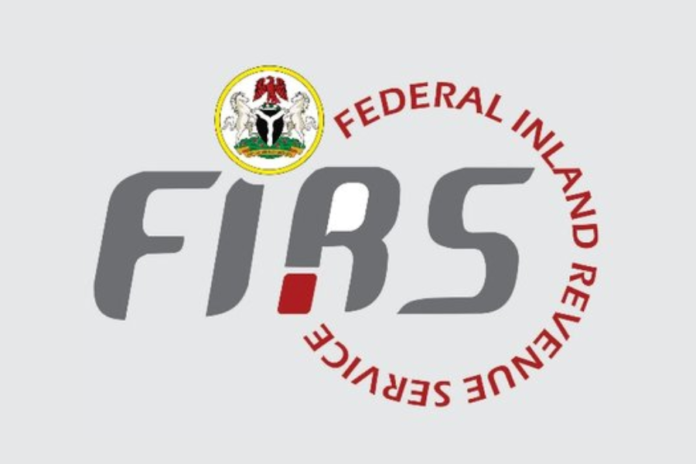The Federal Inland Revenue Service (FIRS) and Afropolitan Media Limited have held the Kaduna State session of an on-going national sensitisation and capacity-building training programme for media professionals.
The Kaduna State leg of the sensitisation workshop was held on Tuesday, 4 April, 2023 at Admiralty Suites, Murtala Muhammad Square, Race Course, Kaduna State
The FIRS and Afropolitan Media Limited initiated the national workshop programme in order to bring journalists abreast of developments in the Nigerian Tax System under the administration of the Service’s Executive Chairman, Mr. Muhammad Nami, so that the media can inform the general public from a position of knowledge of the sector.
The workshop was also designed to sensitise the media on new challenges posed by fresh developments to tax organizations in the country and worldwide such as e-commerce.
The training therefore, was conceived in order to deepen knowledge of the Nigerian tax administration among journalists so that they can report the sector better to the understanding and benefit of taxpayers in Nigeria.
The first of the capacity-building series was held on Wednesday 29, March, 2023 in Mararaba, Nasarawa State. The next is scheduled for Kano State on Thursday, 6 April, 2023.
The topic for the Kaduna workshop, “Understanding the Rudiments and Importance of Taxation in Nigeria” was developed in three modules and delivered at the event in two sessions – morning and afternoon – by a Partner and Tax Consultant at Shehu Mohammed & Co, Mr. Ma’roof Ibraheem Ajibola (FCA).
Chairman, Correspondents Chapel, Nigeria Union of Journalists (NUJ), Kaduna State, Mr. Abdulgafar Alabelewe, led a full house of journalists practicing in the state to the Kaduna workshop.
In her Welcome Address at the one-day event, Chief Executive Officer, Afropolitan Media Limited, Hajiya Aisha Umar Halilu, informed the gathering that “the workshop aims to bring participants up to date on current challenges faced by tax authorities like the FIRS and the importance of the media reporting these challenges ethically and responsibly in close collaboration with the FIRS and other tax bodies at the sub-national levels and for the education of the taxpaying public.”
She commended the FIRS under the Nami Administration for supporting the capacity-building training programme for media professionals in the country and urged the journalists to make use of the knowledge gained at the workshop to sensitise the public better on their legal responsibility to pay tax.
The central theme for the national capacity-building programme is “The Role of the FIRS in Driving the Nation’s Tax Administration for Nation-Building”.
In the morning session, Ajibola delivered the module on a “General Overview of the Nigerian Tax Ecosystem”. He defined tax as “any compulsory payment to government imposed by law without direct benefit or return of value or a service whether it is called a tax or not”
Ajibola expanded his treatise on the Nigerian Tax System with a detailed treatment of sub-topics covering the various tax authorities in the country, at the apex of which stands the FIRS; tax types and the Relevant Tax Authority (RTA) that can demand them among the FIRS, State Board of Internal Revenues and Local Government Revenue Committees; and common terms and acronyms used in taxation in Nigeria.
He explained areas where tax collection overlaps and the role of the Joint Tax Board (JTB) – headed by the Executive Chairman of the FIRS – in administering the tax intersections. For instance, Ajibola told the participants that the FIRS is the only tax body backed by law to collect Company Income Tax (CIT) while states collect Personal Income Tax (PIT) from all residents. He added that the FIRS collects Value Added Tax (VAT) on behalf of the three tiers of governments.
The local governments, Ajibola added, collect rates, levies and fees like tenements, motor park levies, birth, marriage and death registration fees, radio and television licence fees, signboard and advertisement permit.
Ajibola also took participants through the administrative structure of the FIRS, its Board’s composition as well as other representatives of Federal Government institutions who are represented on the Board.
He stressed that the FIRS only assesses and collects taxes, and play no role in how tax revenue is allocated or shared by government, hence Nigerians should desist from asking taxmen and taxwomen to account for how tax revenue is spent by governments at all levels.
After his discourse, the resource person fielded questions from participants during which the journalists asked him several burning questions bordering on multiple taxation, ground rent, the rich shirking to pay their fair share of tax, bank charges on electronic transactions, Pay As You Earn (PAYE) deductions in the academia, VAT and Withholding Tax on media advertisement, among others.
A deep cross-fertilisation of ideas ensued as Ajibola answered the initial sets of questions asked and the follow up queries. A tea break was the called after which the afternoon session held.
The second session was as highly illuminative as the first as Ajibola taught the modules “FIRS: Roles, Responsibilities and Administration” and “Reforms and Innovations in the FIRS: TaxPromax, Finance Acts, SENTINAL”.
The course content saw Ajibola lectured participants on how the FIRS functions administratively in the tax ecosystem in Nigeria and abroad as well as the reforms which the Nami Administration had carried out to make tax payment easier for Nigerians, including the benefits these had brought to the taxpayer and Nigeria.
The Nami reforms, Ajibola added, has led to Nigeria moving into double digit collection figures in the trillion naira mark as the FIRS under Nami increasingly raked in higher tax revenue since 2019, culminating in the collection of N10.5 trillion in 2022 tax year.
Ajibola attributed the FIRS success to Nami’s administrative ingenuity in the area of Information and Communication Technology (ICT) use in the tax collection, particularly the construction of the Taxpromax platform developed by FIRS staff, which was launched on June 7, 2021; FIRS’ overseas collaboration with the tax authorities in other countries; the onboarding of Nigeria on the global, e-tax system, SENTINAL, via which online purchases, gaming, among others, can be taxed to the benefit of Nigeria; the grassroots approach to locating FIRS Tax Office close to the people; and institutional reforms carried out to reposition the FIRS since Nami and the Board of the FIRS were put in place by President Muhammadu Buhari; and the reliefs which the Finance Acts – also initiated under the Nami administration – have brought to taxpayers in the country.
Participants also interrogated the two modules presented in the afternoon session, leading another animated question-and-answer session between the resource person and the journalists, which cleared many grey areas participants had on taxation in Nigeria.
In closing, participants commended the FIRS and Afropolitan Media Limited for organizing the workshop, stressing that they would deploy the fresh insights gained at the event to inform the public better on paying their tax promptly as patriotic citizens.
The FIRS/Afropolitan capacity-building programme for professional media practitioners is scheduled to hold in Kano on Thursday 6 April, 2023.








































